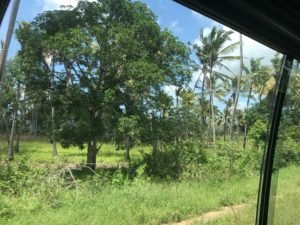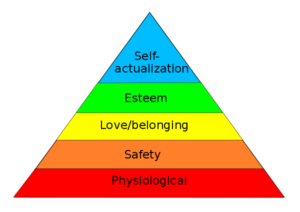I often get messages from friends and colleagues asking how my new life in Kenya is going so far. Since it’s my birthday today, I figured I’ll write down a reflection post answering some of the most frequent questions. Just a heads-up…this post is going to be long and raw, so if I were you I’d just get myself a cup of coffee and read…
–>So how is life in Kenya?
Here’s the thing…sometimes you live life in black and white, and sometimes you live life in color.
Life in Kenya is living life in a kaleidoscope of colors.
As my older brother likes to say, “Every country has its own advantages and disadvantages.”
And yes, he should win an award for profundity.
When it comes to safety, infrastructure and quality of life, of course the UAE wins. But we shouldn’t miss the one thing that Kenya is that UAE could never be…
Kenya is ours.
And you want to know the best superpower humans were gifted with?
Our ability to adapt.
When I heard I had to leave, the only thing I could think about was everything I was about to lose. Now I realize I didn’t really think about everything I was going to gain instead.
Every other day I go through an experience that makes me think, “See? That wouldn’t have happened if you were still there.”
So I’m grateful about that.
–>What are you doing nowadays? What are you planning to do?
I’ll leave the details of what I’m doing for another post, but here, I’ll give you my thought process.
The natural trajectory of my career is to apply for postdoc positions abroad and wait to be picked, but that’s contingent on the success of several independent steps including; – a relevant lab gets funding – my CV reaches the person hiring – my application gets chosen over the competition – the country grants me visa.
Since I’m Ms. Managing Expectations, I’m aware of the following; not only does each additional step reduce the probability of the overall thing happening, but most of these steps are out of my control and to be honest, after everything that has happened, I just cannot build a life around things that are outside my control. So in addition to sending out applications, I’m looking at what is within my control and putting more focus and attention on that.
–>Given the chance, will you apply again to the UAE and if you get the visa will you go back?
I’m still on the fence about this one.
Everybody knows that I love the UAE – the country shaped me and educated me – and there’s no way I would have left of my own volition…but here’s an interesting perspective I heard from a fellow Gulf alumni (as defined here) when he was asked the same question.
“There is no way I’m going to let my kid go through that; get used to a place only to be uprooted like that with no explanation given.”
It struck me as interesting because many expats who stay there cite “for the kids” as the main reason, but this guy didn’t want to go back because of the kids. He got uprooted in his twenties and that devastated him. Ok, his story was worse than mine and I have no permission to share it, but he found himself starting from zero in Kenya with none of the survival skills that African kids grow up with [because growing up in the Gulf made us soft*].
The problem is compounded by the fact that he went back to Kenya with degrees from the Middle East and had to compete with Kenyans educated in the US. It was a struggle for him to reach a new state of homeostasis, but now that he’s reached there, there’s no way he’s going to let his kid go through something similar because it was too traumatizing for him.
Which really raises the question, Do expat parents really talk to their kids about how the visa system works?
Now I have enough humility to admit that my story is much better because our parents always made it clear that sooner or later we had to go back home unless we wanted to move to a different country that granted citizenship (they left that choice to us because they were not interested). That meant we spent summers in Kenya, our paperwork there was always updated, we knew people, and most importantly…we spoke the language.
You might think it’s not important but this language thing is a huge deal. I know people who want to return to their home countries but not knowing their own language presents the biggest barrier.
As kids, my parents banned Swahili at first because they wanted us to pick up Arabic. Funny enough, Swahili was the only language they spoke among themselves, so technically it was our mother ear (not mother tongue). We grew up understanding everything, but when we came to open our mouths to attempt Swahili during summers, things went horribly wrong.
They still do, by the way.
*Elaborating on how growing up in the Gulf made us soft, “like marshmallows” (like one of my beta readers mentioned). I don’t know if it’s because of the way we were raised in an environment with ample comforts and opportunities, but at some point you realize how being soft gives you a disadvantage. You learn that nobody is going to hand you anything in life, and if you want something you’ve got to go out and get it. Every time you stop moving, there are thousands overtaking you. It’s like that quote that says, “Work like there’s a kid in a garage somewhere working 24 hours per day to take it all away from you.”
–>How are you coping emotionally?
So there are good days and bad days. Life’s like a cosine wave with its ups and downs (could be like a sine wave too but I like the element of surprise that comes when you cosine zero).
I might have cried a couple of times thinking about the whole unfairness of the situation but then I remember the saying, “If you expect the world to be fair with you , it’s like expecting the lion not to eat you because you didn’t eat him.”
And we do know a thing or two about lions.
–>What’s your address? I want to mail you something…
I don’t have an address.
I live off a duffel bag and move between three places in Nairobi, Mombasa and Malindi.
Again, I’m grateful that I have options, but if I were to pick a place I would pick Nairobi…hands down.
I love Nairobi the most.
It’s funny because I was looking at my diaries from one of the few Nairobi trips we took back in 2009 and I realized I loved Nairobi from the very beginning. I love the pace of the city, the people (and their hustle). I even love the things that others complain about; the weather and the traffic.
It’s so cold that you don’t need coffee to wake up in the morning. All you have to do is wash your face with the freezing cold water and khalas…you’re awake for the rest of the day.
And the traffic I love only because I still don’t drive but Uber around…ask me about that once I start driving.
–>Should we visit?
Of course….It’s a really beautiful country.

You can look at the scene in the picture above and wonder where I took it and whether it is filtered, but I took it sitting in an uncomfortable chair in a matatu driven by a driver who had a penchant for pressing the accelerator and blaring the horn.
–>We saw on the news that….
For the first time I actually have to agree with Trump about some news being fake, especially when I see what the international media report about the Kenyan elections. Once, one of those channels showed videos from 2007 and made it seem like the country is at the brink of a civil war, when the reality on the ground is much different. Everyone’s back to business. Even the tourist situation is much better than it used to be right after Westgate. On Sep 1 they annulled the election and we’re waiting 60 days for the re-election but to be honest, everyone just wants this whole thing over with.
–>Conclusion?
Sometimes when you get stuck in the do-[n]-buy cycle, you forget that money is only a part of the whole wealth equation. Another important part is human relationships.
Actually, if you think about it, Maslow defined it best when he came up with the hierarchy of needs shown below. A lot of us get stuck in the first step, but sometimes you realize there really is more to life than that.
And maybe that’s why I say life in Kenya is a kaleidoscope of colors.

